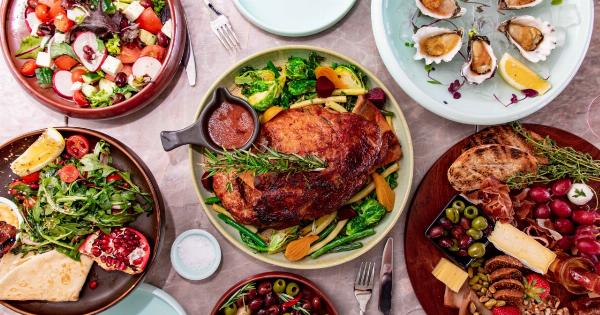Anemia is a condition that occurs when your body does not have enough healthy red blood cells to carry oxygen to tissues throughout the body. It can leave you feeling tired, weak, and with a lack of energy.
While meat is a traditional source of iron and other nutrients that help combat anemia, there are plenty of meat-free alternatives that can provide the necessary nutrients to manage the condition. Here are some of the best meat-free foods for anemia:.
1. Spinach
Packed with iron and vitamin C, spinach is a great meat-free option for managing anemia. Iron from plant sources is not as well absorbed as iron from animal sources, but pairing iron-rich foods with vitamin C-rich foods can help enhance absorption.
Spinach is not only rich in iron but also provides a good amount of vitamin C, making it an excellent choice for individuals with anemia.
2. Legumes
Legumes such as lentils, chickpeas, and beans are excellent sources of iron, fiber, and protein. They are also low in fat and cholesterol, making them heart-healthy alternatives to meat.
Adding legumes to your diet can help increase your iron intake and manage anemia effectively. Pairing legumes with vitamin C-rich foods can further enhance iron absorption.
3. Quinoa
Quinoa is not only a good source of iron but also contains other essential nutrients like magnesium, manganese, and folate. It is also a complete protein, providing all essential amino acids.
Incorporating quinoa into your meals can help boost your iron levels while providing a range of other health benefits.
4. Tofu
Tofu is a popular meat substitute that is rich in iron, calcium, and protein. Made from soybeans, tofu can be used in various dishes as a versatile and nutritious alternative to meat.
It also contains other minerals like magnesium and zinc, which are essential for overall health.
5. Nuts and Seeds
Nuts and seeds, such as almonds, cashews, pumpkin seeds, and sesame seeds, are packed with iron, protein, and healthy fats. They make for a great snack or can be added to salads, smoothies, or baked goods.
Including a variety of nuts and seeds in your diet can help increase your iron intake and combat anemia.
6. Dark Chocolate
Believe it or not, dark chocolate can be a good source of iron. Choosing chocolate with a high cocoa content (70% or more) ensures a higher iron content. However, moderation is key, as chocolate is also high in calories and sugar.
Enjoying a small piece of dark chocolate as an occasional treat can contribute to your daily iron intake.
7. Leafy Greens
Aside from spinach, other leafy greens like kale, Swiss chard, and collard greens also contain iron. These greens are not only iron-rich but also loaded with other vitamins and minerals that support overall health.
Adding a variety of leafy greens to your diet can help boost your iron levels and improve anemia symptoms.
8. Fortified Plant-Based Milks
Fortified plant-based milks, such as soy milk and almond milk, are often enriched with essential vitamins and minerals, including iron.
Check the labels to ensure that the milk you choose contains added iron and other nutrients beneficial for managing anemia.
9. Whole Grains
Whole grains like brown rice, quinoa, oats, and barley not only provide iron but are also rich in other nutrients such as B vitamins and fiber.
These grains offer a healthier alternative to refined grains and can contribute to managing anemia when incorporated into a balanced diet.
10. Dried Fruits
Raisins, prunes, apricots, and dates are excellent sources of iron and other essential nutrients. They make for a convenient and nutritious snack, providing both a quick energy boost and a good amount of iron.
Including dried fruits in your diet can help increase iron intake and combat anemia symptoms.






























